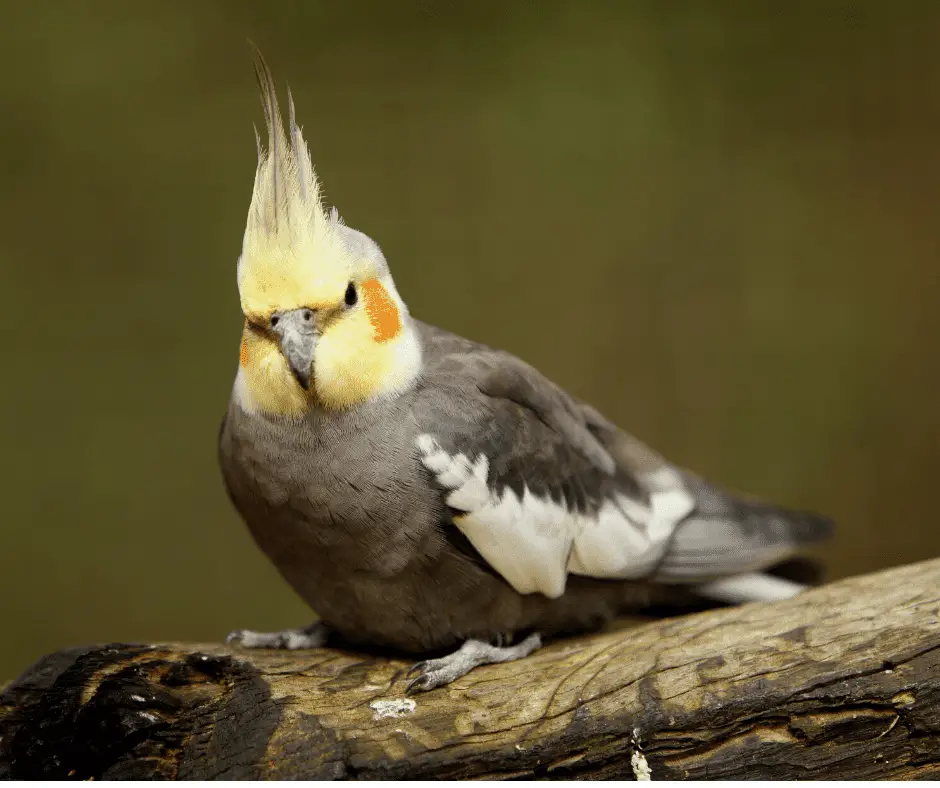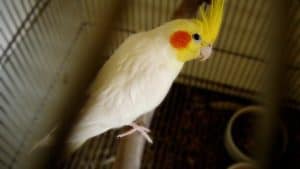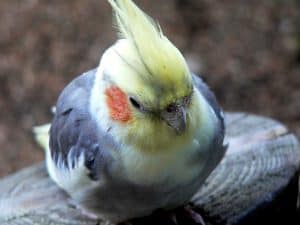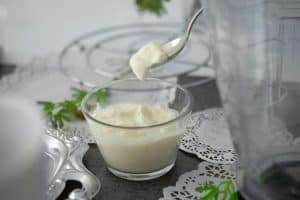Cockatiels are among the most popular pet birds worldwide, known for their friendly demeanor, playful nature, and the strong bonds they form with their human companions. As a cockatiel owner, it’s essential to understand and interpret their behaviors to ensure their well-being and happiness.
Why is my cockatiel shaking? One behavior many cockatiel owners notice is shaking or shivering, which can be concerning if you’re unsure of the cause. In this blog post, we will explore the various reasons why your cockatiel might be shaking and help you determine whether it’s a normal behavior or a sign that something might be amiss.
Normal Cockatiel Behavior vs. Cause for Concern
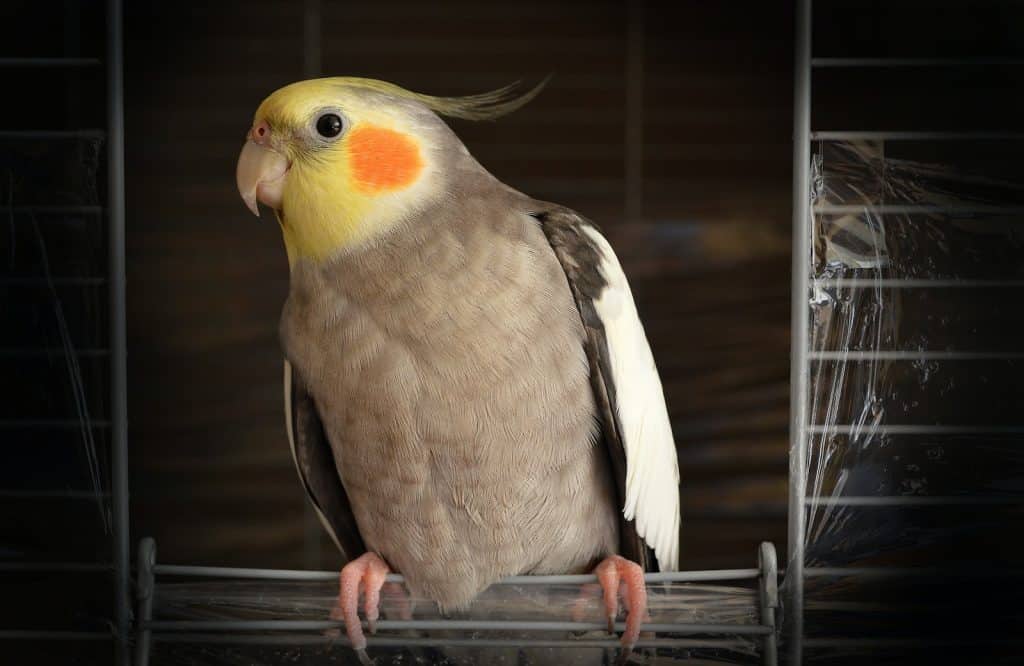
Before delving into the various reasons for a shaking cockatiel, it’s essential to understand what constitutes normal bird behavior and when it might be a cause for concern. Cockatiels, like most birds, exhibit a range of body language and movements that can sometimes be misinterpreted as strange or out of character behavior.
Normal bird behavior includes preening, stretching, flapping their wings, and even brief shivers or shakes. However, if you notice your cockatiel shaking excessively, appearing distressed, or exhibiting other abnormal behaviors or symptoms, it’s crucial to investigate further and consult with an avian vet if necessary.
Common Reasons for Cockatiel Shaking
There are several reasons why your cockatiel could be shaking, ranging from normal reactions to environmental factors to potential health issues. Below, we outline some of the most common causes for a shaking cockatiel.
1. Temperature Changes and the Need for Warmth
One of the most common reasons for a cockatiel shivering or shaking is a response to cold temperature. Birds, like humans, need to stay warm and maintain a stable body temperature to function properly. When exposed to cold air or sudden temperature drops, cockatiels may shiver or shake to generate body heat.
To ensure your pet cockatiel is comfortable, maintain a consistent temperature within their living space, ideally between 65-75°F (18-24°C). You can achieve this by placing their cage in a draft-free area, away from windows or doors, and providing a heated perch or space heater if necessary. Remember to always provide fresh water and monitor the humidity levels in the room, as dry air can also cause discomfort for your bird.
2. Fear or Anxiety
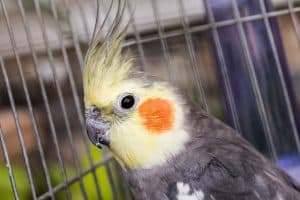
Another reason why your cockatiel might be shaking is due to fear or anxiety. Cockatiels, like many pet birds, can be sensitive to sudden movements, loud noises, or changes in their environment. When feeling threatened or stressed, they may shake or shiver as a natural response.
As a bird owner, it’s crucial to identify potential stressors and create a comfortable environment for your pet. Ensure your cockatiel’s cage is placed in a quiet, calm area of your home, away from loud noises or constant foot traffic. Additionally, socializing with your bird and building trust can help reduce their fear and anxiety.
3. Excitement or Anticipation
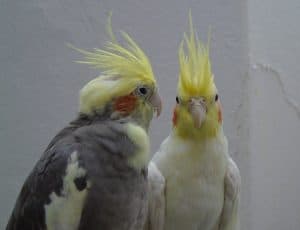
Not all shaking in cockatiels is negative; sometimes, they may shake due to excitement or anticipation. Just like humans, birds can exhibit physical reactions to positive emotions. If you notice your bird shaking when you approach their cage, it could be a sign that they are excited to see you or anticipating a favorite treat or toy.
To encourage healthy excitement and stimulation, provide your cockatiel with a variety of toys, perches, and activities within their cage. Regular interaction and playtime with your bird can also help foster a strong bond and ensure their emotional well-being.
4. Illness or Injury
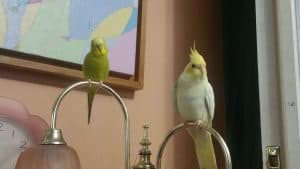
In some cases, a shaking cockatiel may be a sign of illness or injury. Symptoms to look for alongside shaking include ruffled feathers, wheezing noises, changes in appetite, or lethargy. If you suspect your bird is unwell, it’s essential to consult an avian veterinarian immediately to determine the cause and receive appropriate treatment.
5. Internal Parasites
Lastly, cockatiels may shake or shiver due to an internal parasite infestation. Although not as common in pet birds as other animals, intestinal parasites can still be a concern and lead to health issues if left untreated. Symptoms of this type of infection often include weight loss, diarrhea, lethargy, and excessive shaking or shivering. For baby cockatiels, heavy infestations may even lead to death.
Prevention and Care
To ensure the health and happiness of your pet cockatiel, follow these preventative measures and care tips:
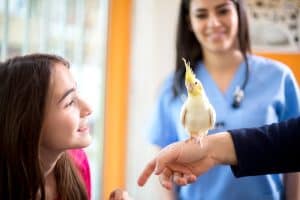
– Schedule regular check-ups with an avian veterinarian to monitor your bird’s health and catch any potential issues early.
– Provide a balanced diet, including a high-quality pellet mix, fresh fruits, vegetables, and occasional treats.
– Maintain a clean living environment for your bird, including regular cage cleaning, fresh water, and proper temperature and humidity control.
– Offer mental and physical stimulation through toys, perches, and social interaction.
– Observe your cockatiel’s behavior and communication closely to identify any changes or concerns promptly.
A healthy cockatiel is a happy cockatiel; with proper care and attention, your pet will be sure to thrive. With these tips in mind, you can ensure that your beloved bird has the best possible care.
Conclusion: Why is my cockatiel shaking?
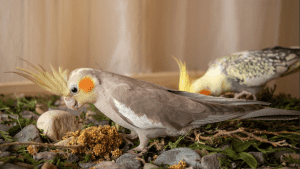
Understanding why your cockatiel is shaking or shivering can help you determine whether it’s a normal behavior or a sign that something might be amiss. By providing a comfortable environment, proper care, and regular check-ups with an avian vet, you can ensure the health and happiness of your pet bird. If you ever have concerns about your cockatiel’s behavior or well-being, don’t hesitate to consult a veterinarian for guidance.
Remember, as a cockatiel owner, you are your pet’s best advocate. By taking the time to understand their body language and needs, you can create a strong bond and enrich the life of your feathered friend.
Other suggested articles:
